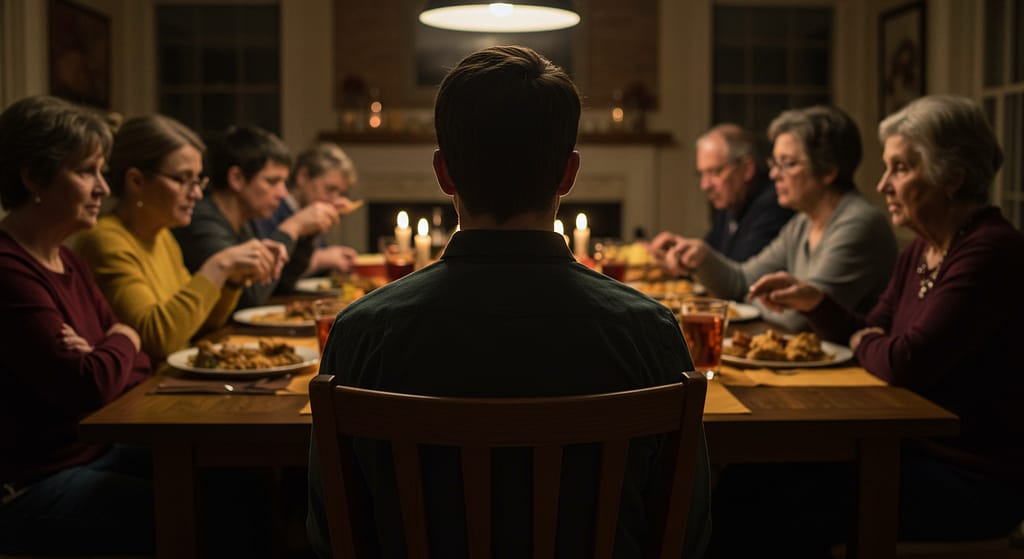
Thanksgiving: On This Day…
Thanksgiving—a day filled with food, family, gratitude, and… stress?
For many young adults, Thanksgiving isn’t always as joyful as it’s portrayed. While it’s meant to be a celebration of togetherness, the holiday can also bring pressure, anxiety, and emotional overwhelm.
“After a good dinner one can forgive anybody, even one’s own relations.”
— Oscar Wilde
The humor in Wilde’s quote reflects a truth we often avoid: family gatherings, though rooted in love, can sometimes reopen emotional wounds or stir unresolved tension—especially for young adults still navigating identity, independence, and mental health.
Why Thanksgiving Can Be Stressful for Young Adults
1. Unrealistic Expectations
There’s often an unspoken expectation to be cheerful and participate in everything—smile, socialize, and share updates about school, work, or relationships. For a young adult dealing with stress, anxiety, or depression, this can feel like a performance rather than a celebration.
2. Family Pressure & Questions
“Are you dating anyone?”
“When are you graduating?”
“What’s next?”
Innocent questions can feel like interrogation. Family gatherings can unintentionally spotlight insecurities and life pressures that your young adult may not be ready to discuss—or even fully understand themselves.
3. Loss, Conflict, or Change
Thanksgiving might be the first big holiday after a major change—divorce, a death in the family, or even moving out. These transitions can make the day more painful than joyful, especially when everyone around them seems to be celebrating.
4. Overstimulation
Between food prep, travel, group activities, and socializing, the sensory and emotional demands of Thanksgiving can be exhausting for those who are introverted, neurodivergent, or emotionally sensitive.
What Parents and Caregivers Can Do
- Create space for quiet moments. Allow your young adult to step away, recharge, or say no to certain conversations without guilt.
- Avoid pressuring them for updates. Let them share at their own pace, and focus on connection rather than performance.
- Be mindful of tone and timing. Sensitive questions are better asked one-on-one than across the dinner table.
- Watch for signs of stress. Withdrawal, irritability, or silence might indicate overwhelm—not rudeness.
- Offer support, not judgment. Let them know they’re seen, loved, and valued, regardless of where they are in life.
For Young Adults: How to Cope with Thanksgiving Stress
- Set boundaries ahead of time. If there are topics you don’t want to discuss, practice polite ways to redirect the conversation.
- Find your ally. Whether it’s a cousin, sibling, or parent—spend time with someone who makes you feel safe and heard.
- Plan self-care. Bring a journal, headphones, or a comfort item. Take walks or listen to calming music to reset when needed.
- Practice self-compassion. You’re allowed to feel overwhelmed. You’re doing your best—and that’s enough.
Final Thoughts
Thanksgiving can be a time of joy, reflection, and connection—but it’s also okay if it feels hard. Whether you’re a parent supporting a young adult or a young person trying to manage emotional strain, remember this: you are not alone. A little empathy goes a long way.

